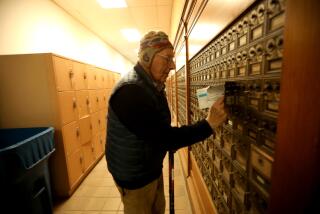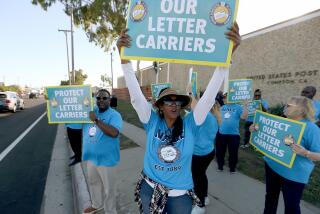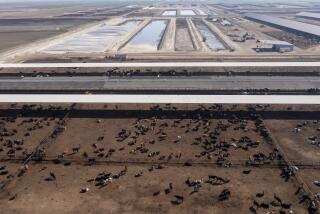You’ve Got Mail!
- Share via
They sit there like tireless, loyal sentinels at the end of millions of rural driveways. They are rusty or shiny, tiny or spacious, creative statement or utilitarian afterthought. But America’s roadside mailboxes have for generations been the down-home gateway between this big land’s country residents and the not-always-friendly world outside, the one that sends tax bills, junk mail and, recently, some pipe bombs.
America’s rural residents have long thought of themselves as at least apart from, possibly even above, the criminal mayhem, personal betrayals and unpredictable terror of the mushrooming urban and suburban areas whose bright lights and exciting opportunities dominate television and suck away so many young people. That’s not factually true, of course. Smaller towns and farms have over the years seen their smaller share of brutal, even bizarre, crimes. The “In Cold Blood” murders were on a farm. The Unabomber lived by an idyllic mountain village. And, by chance, little Shanksville, Pa., was a Sept. 11 crash site.
Security isn’t the countryside’s first thought. Many there do not routinely lock cars or homes. Indeed, that’s how residents spot newcomers; they’re the ones locking cars on Main Street. So even though police arrested a pipe-bomb suspect, the undeniable reality that some nut case from afar was infecting these innocent receptacles with wired explosives is emotionally jarring and chilling, like a crime wave in a vast neighborhood. Once, it was beyond imagination to see towering skyscrapers as targets or airliners as intentional fuel-filled missiles. Those assumptions too were shattered by new unpredictables.
Country mailboxes, unlike their suburban community-regulated kin, come in all shapes, sizes and conditions. Boxes are welded atop chains and old plows. They’re left to age naturally or painted bright colors, the easier to follow directions down roads built straight along 19th century survey lines where fields slowly warm in the spring sun. Some mailboxes stand alone, miles from their homestead. They mark school bus stops and meeting points. Every winter they’re beaten by tons of snow hurled off speeding plows. They’re dented by hail, stiffened by freezing rains, even battered by passing rural delinquents leaning from cars swinging baseball bats.
Some families wire their distant mailbox to beep the house when its door is opened. Until this month that could mean two things: The mailman had just passed or a spouse was almost home. Another little marker of change in this land. Which may not mean much.
Or maybe it does.
More to Read
Sign up for Essential California
The most important California stories and recommendations in your inbox every morning.
You may occasionally receive promotional content from the Los Angeles Times.













